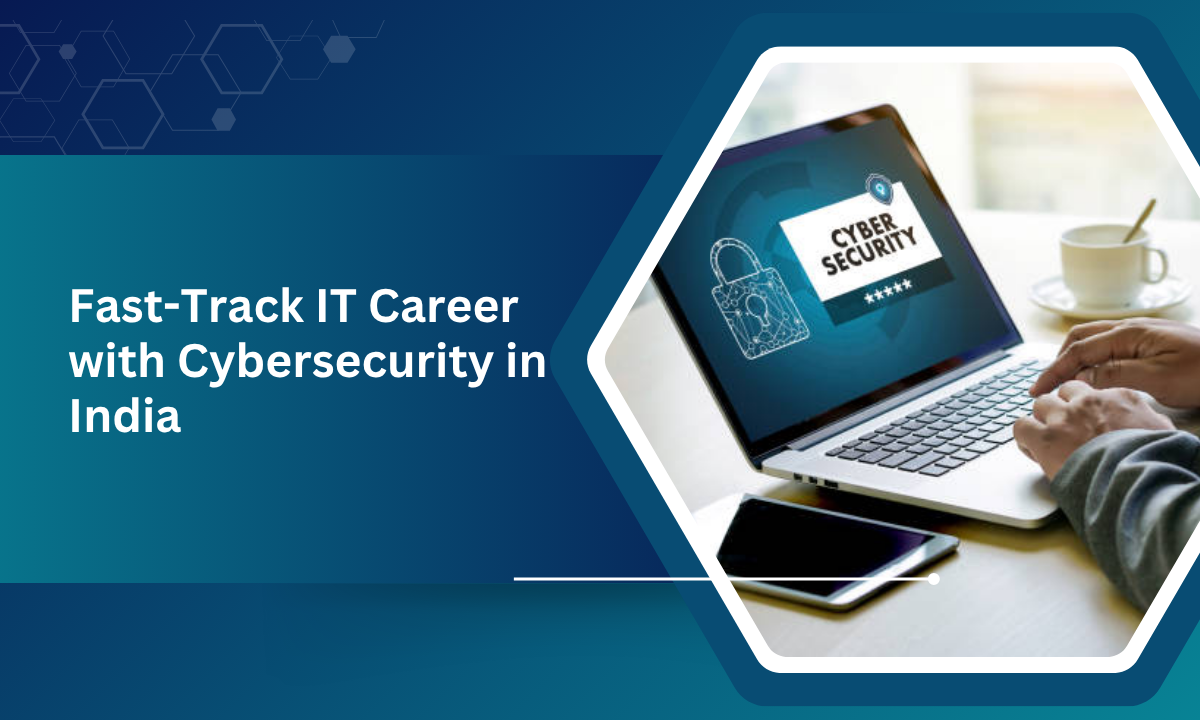Table of contents:
|
1. Why Choose a Cybersecurity Course Now? |
|
2. Engineering & Architecture: Building Secure Foundations |
|
3. Incident Response: The Frontline of Cyber Defence |
|
4. Management & Administration: Leadership in Cybersecurity |
|
5. Consulting: Advising Organisations on Security Strategy |
|
6. Penetration Testing & Ethical Hacking: The Hacker’s Perspective |
|
7. Choosing the Right Training Institute in Bangalore |
|
8. Your Roadmap: From Course to Career |
|
9. Final Thoughts |
|
10. FAQs |
At Apponix, we believe that staying ahead in technology means embracing the right opportunities at the right time. That’s why I’m excited to talk about one of the most powerful moves you can make: pursuing a cybersecurity certification in India.
With cyber threats growing by the day, gaining credentials and expertise in cybersecurity course areas isn’t just a smart choice; it’s essential. Whether your interest lies in engineering and architecture, incident response, management and administration, consulting, penetration testing, or ethical hacking, the path is clear and full of potential.
And if you are in Bengaluru, a training institute in Bangalore offering a top-tier cybersecurity course in Bangalore might just be your launchpad.
Why Choose a Cybersecurity Course Now?
Digital transformation, cloud adoption, and hybrid work models have expanded the attack surface for organizations. In India, companies across sectors are expanding security teams, seeking professionals who can lead defense strategies, manage incidents, and test vulnerabilities. The result: demand for cybersecurity skills is rising rapidly.
A formal cybersecurity certification in India acts as a trusted signal to employers that you’re ready for the role. More importantly, the right training gives you hands-on skills whether you’re zeroing in on ethical hacking, building security architecture, or steering incident response.
At Apponix, we see too many candidates with certificates but without practical depth. That’s why our recommended courses emphasise real labs, live attack simulations, and therapy-style assessments.
Engineering & Architecture: Building Secure Foundations

If you’re someone with a technical background, whether in computer engineering, electronics, or software development, you’re in a prime position to steer your IT career into cybersecurity. Engineering and architecture roles centre on designing security-first systems: secure networks, cloud infrastructure, identity management, and data protection frameworks.
Within a good cybersecurity course, you’ll learn how to apply secure design principles, evaluate threats at the architectural level, and oversee the integration of security controls across platforms. These roles are especially pivotal in sectors like banking, telecom, and cloud service providers, where the cost of a security lapse is severe.
Incident Response: The Frontline of Cyber Defence
When a breach happens, organisations turn to incident response teams. If you enjoy high-pressure environments and thinking on your feet, then incident response might be for you. Your job could involve identifying a cyber-attack, isolating affected systems, leading a forensic investigation, and restoring operations.
A good cybersecurity course covers incident response methodologies, digital forensics, threat hunting, and simulation of real-world attacks. With the right certification, you’ll signal to employers that you know how to react fast and decisively when vulnerabilities turn into emergencies.
Management & Administration: Leadership in Cybersecurity
Not everyone in cybersecurity works at the keyboard. Some lead teams craft policies, oversee governance, risk, and compliance, and ensure security strategy aligns with business goals. If you’re more inclined towards people and processes than packet capture and exploit scripts, a role in management and administration could be your destination.
Here, your cybersecurity course should include modules on security governance, regulatory frameworks, vendor management, security operations centre (SOC) leadership, and strategic consulting. By earning a certification with a management focus, you position yourself for higher pay and broader influence.
Consulting: Advising Organisations on Security Strategy
Consulting combines deep technical knowledge with business insight. As a cybersecurity consultant, you might audit an enterprise’s defenses, recommend architecture changes, run penetration tests, or help roadmap a company’s compliance journey.
To succeed, you’ll need a mix of technical skills (ethical hacking, penetration testing) and soft skills (client management, communication, business acumen). A certification from a recognised training institute in Bangalore adds credibility. And if you pair that with participation in hackathons or bug-bounty programs, you stand out even more.
Penetration Testing & Ethical Hacking: The Hacker’s Perspective
For adrenaline-seekers who want to think like attackers, penetration testing and ethical hacking are thrilling career paths. You’ll break into systems (with permission), identify vulnerabilities before the bad actors do, and report findings to strengthen defences.
In your cybersecurity course in Bangalore, look for modules on vulnerability assessment, exploit development, red-team operations, and real-world labs. Certifications like CEH (Certified Ethical Hacker) or specialised penetration testing certifications boost your profile. Employers hiring ethical hackers often demand proven skills in tools like Metasploit, Burp Suite, and Nmap. As one article suggests, candidates demonstrating real-world capability stand out significantly.
Choosing the Right Training Institute in Bangalore
Here at Apponix, we recognise how crucial it is to pick the right training provider. When evaluating options in Bangalore, ask:
-
Does the institute provide hands-on labs, not just slides?
-
Are instructors certified professionals with industry experience?
-
Does the course map to recognised certifications and job roles?
-
Are there real-world projects, bug bounties, or CTFs (Capture the Flag)?
-
Does the institute offer placement support or industry tie-ups?
When you combine credible coursework with your ambition, you’re not just preparing for a certificate and for the next phase of your career.
Your Roadmap: From Course to Career
1. Pick your focus – Decide whether you lean technical (ethical hacking/pen-testing) or strategic (management/consulting).
2. Enroll in a credible programme – Choose a cybersecurity course aligned with your career goals.
3. Earn your certification – A recognised certification in India signals your readiness to employers.
4. Build real skills – Use labs, simulations, and live attack exercises to sharpen your abilities.
5. Get experience – Internships, bug-bounties, open-source contributions, or labs help bring your résumé to life.
6. Network & keep learning – Cybersecurity evolves fast. Stay updated via forums, workshops, and advanced certifications.
Final Thoughts
At Apponix Training Institute in Bangalore, we have witnessed countless IT professionals transform their career trajectory through a focused move into cybersecurity. Taking up a cybersecurity certification in India isn’t just about adding a line to your résumé; it’s about embracing a field with profound impact, rising demand, and abundant opportunity.
Whether you aim to build secure architectures, respond to cyber incidents, lead security operations, counsel enterprises, or probe systems as an ethical hacker, the right training turns potential into possibility.
In the Indian job market, where digital infrastructure is booming, cyber-attacks are increasing, and security talent is in short supply, the moment to act is now. By enrolling in a top‐tier cybersecurity course in Bangalore, you’re not just picking up credentials; you’re entering a journey of continuous growth, high responsibility, and strong reward.
Your future self will thank you for this decision. Let’s get started together, gear up for the cyber-frontline, earn that certification, and make your mark.
FAQs
Q: How long does it take to complete a cybersecurity certification in India?
It varies. Some entry‐level certifications can be completed in a few months, while advanced certifications (especially if combined with hands‐on labs) may take 6–12 months or more, depending on your commitment and prior experience.
Q: Do I need prior IT experience to enroll in a cybersecurity course?
Not always. Many institutions offer programmes tailored for beginners, although prior knowledge in networking or programming helps. If you aim for roles like incident response or ethical hacking, having foundational IT skills is beneficial.
Q: Can a cybersecurity certification help me switch my career from a non-IT background?
Yes. With the right cybersecurity skills, good training, strong practice, and certification, you can pivot into cybersecurity. Emphasising labs, projects, and live experience in your résumé greatly improves your chances.
Q: What salary can I expect after getting a cybersecurity certification in India?
Salaries vary greatly based on role, experience, and city. Entry-level roles might start in the 4-8 lakh per annum range, while certified professionals in niche roles like ethical hacking or consulting can earn significantly more as you build experience.
Q: Is choosing a cybersecurity course in Bangalore advantageous?
Absolutely. Bangalore is a major tech hub, offering access to industry tie-ups, networking opportunities, hands-on labs, and exposure to real corporate security environments. A reputable training institute in Bangalore can give you an edge in both skills and placements.




